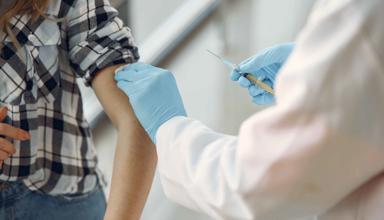This article highlights the key findings from the mid-point review of the Welsh Government’s suicide and self-harm prevention strategy for 2015-2020, Talk to me 2.
The Welsh Government commissioned Public Health Wales and Swansea University to carry out the mid-point review, which reported in March 2018.
Current epidemiology in Wales
Each year, between 300 and 350 people die by suicide in Wales. There has been a general upward trend in male suicide rates since 2005 (this trend is less evident in females), but this may reflect changes in coding and a reduction in the number of hard-to-code narrative verdicts. Comparisons across years should therefore be interpreted with caution.
Suicide rates continue to be much higher for males than for females, with the highest age-specific rates seen in males aged between 30 and 49 years. Rates are higher in more deprived communities, particularly in males.
Patterns for self-harm differ from suicides. Females have higher rates of emergency hospital admission for self-harm than males in almost all age groups, with the highest rates seen in young women aged 15-19. Increasing rates of emergency hospital admission for self-harm in children under 18 years of age may reflect a genuine increase in self-harm, improved awareness and help-seeking behaviour, or improved management in accordance with clinical guidance.
Progress on actions
Talk to me 2 sets out six key strategic objectives. The mid-point review found that good progress has been made against the following:
Objective 1. Further improve awareness, knowledge and understanding of suicide and self-harm amongst the public, individuals who frequently come in to contact with people at risk of suicide and self-harm and professionals in Wales.
Objective 4. Support the media in responsible reporting and portrayal of suicide and suicidal behaviour.
Objective 5. Reduce access to the means of suicide.
Some progress has been made against:
Objective 2. To deliver appropriate responses to personal crises, early intervention and management of suicide and self-harm.
Objective 3. Information and support for those bereaved or affected by suicide and self-harm.
Objective 6. Continue to promote and support learning, information and monitoring systems and research to improve our understanding of suicide and self-harm in Wales and guide action. Additionally, the review found that excellent progress has been made in developing local suicide prevention action plans, following guidance issued by the National Advisory Group. All areas are now covered by local plans at various geographical levels reflecting local arrangements and partnerships.
The review makes a number of recommendations to the Welsh Government, for both the immediate and longer term:
Immediate
- Adopt a cross-agency training framework for suicide and self-harm prevention competence.
- Develop systems to improve information on suicide and self-harm.
- Support the development of a Wales-wide postvention pathway. (Postvention is action taken to support people who are bereaved or affected by suicide, such as family, friends, colleagues and peers).
- Implement current NICE Guidance on the management of self-harm. Forthcoming NICE guidance on ‘Preventing suicide in community and custodial settings’ should be reviewed.
- Consideration should be given to resources being made available both centrally and locally for implementation of Talk to me 2.
- Consideration should be given to providing resources for lay membership of the National Advisory Group.
Longer term
- The impact of socio-economic inequalities on suicide and self-harm should be acknowledged and addressed across strategies and initiatives.
- The prevention needs of age and sex specific vulnerable groups should be considered and addressed, with a particular focus on males.
- Consideration should be given to facilitating means restriction.
- Welsh Government should consider how action to prevent suicide and self-harm will be facilitated at a national level after 2020.
Health Social Care and Sport Committee inquiry
The Assembly’s Health, Social Care and Sport Committee’s ongoing inquiry into suicide prevention will explore further some of the issues identified above.
One of the key messages in evidence to the Committee so far is that suicide is everybody’s business. There remains a clear need to raise awareness and reduce the stigma around suicide/self-harm and mental health more broadly, in order to encourage help-seeking behaviour and help ensure a compassionate response to those who may be experiencing emotional distress.
Oral evidence sessions continue this week (17 May). Further information about the inquiry can be found on the Committee’s web pages.
Help and support
If you’re struggling to cope, need to talk to someone or feeling suicidal, you can contact Samaritans.
Freephone 24 hours a day from any phone on 116 123.
Welsh Language Line: 0808 164 0123 (7pm-11pm, 7 days a week)
Email: jo@samaritans.org
Website: Samaritans Cymru
Article by Philippa Watkins, National Assembly for Wales Research Service






